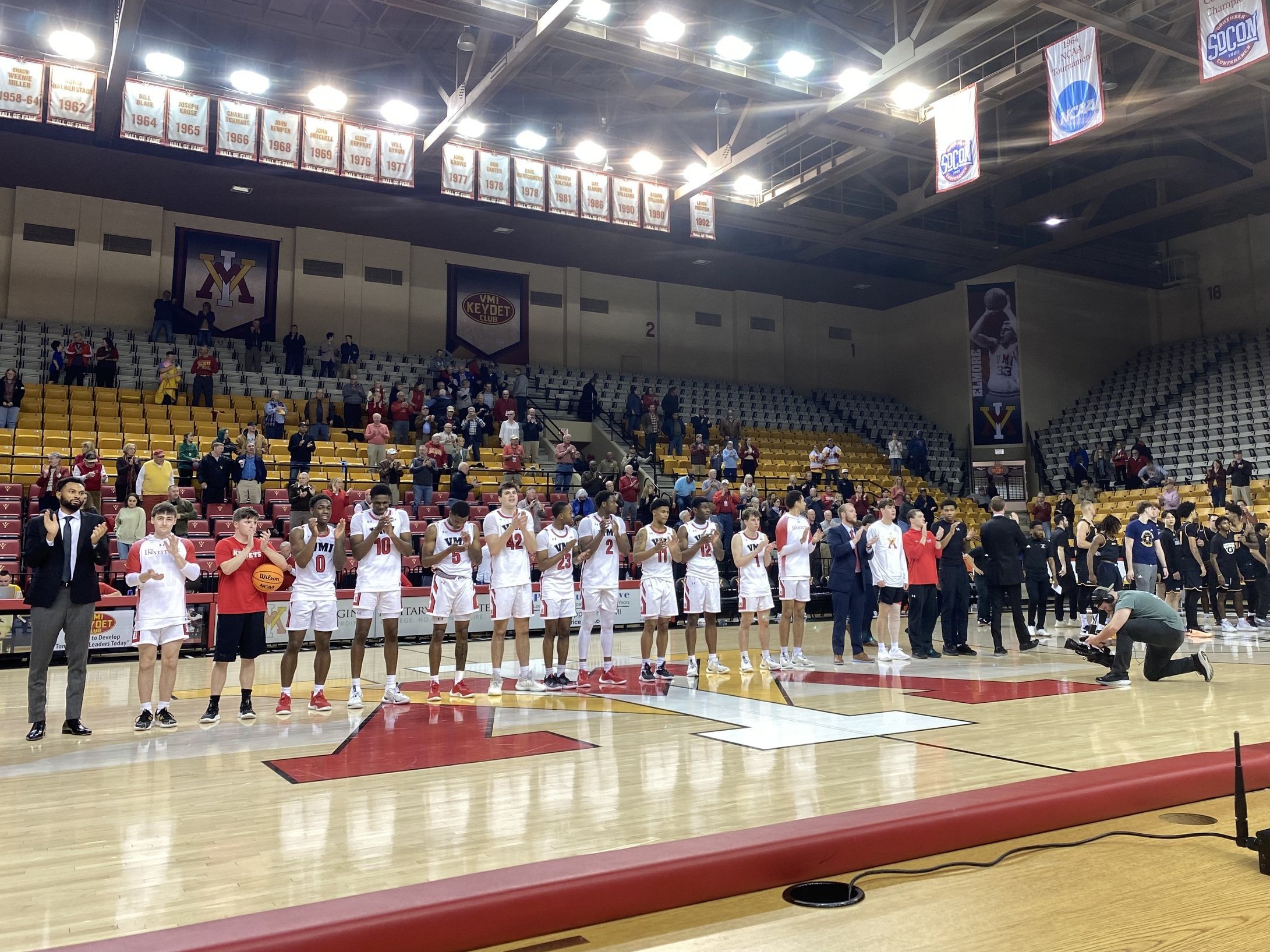
(Photo Courtesy of Jack Hunter)
The rare ‘Transfer-in’
TJ Johnson is the first player in VMI basketball history to transfer in and will join the Rat Line in fall 2024. He’d played forward for two years at Lipscomb University in Nashville. He has three years of eligibility left because he was redshirted during his first year at Lipscomb.
“I have a great opportunity basketball-wise and getting a great education,” he said.
Johnson says he decided to leave Lipscomb because he wasn’t getting as much playing time as he wanted. “It started to become apparent to me that I probably wasn’t supposed to be there,” he said.
He says the VMI coaches were the key reason for his transfer. “I could just see, oh, they really believe in me, and they really want me here.”
TJ Johnson is the first men’s basketball player to transfer into VMI. (Photo Courtesy of TJ Johnson)
In 2023, Rickey Bradley Jr., a guard on the VMI basketball team, transferred through the portal to Georgia State. But he’s coming back in the fall.
During his first year, Bradley suffered a knee injury, and he struggled to heal because of the physical demands of being a student at a military school. “At VMI, they create a schedule for you to not have so much time to just sit down and relax and rest,” he said. “I don’t feel that me staying at VMI would have allowed me to get healthy.”
Bradley says he didn’t appreciate the value of VMI’s military discipline and its alumni network while he was there. But he says he learned a lot about himself—and what he wants in life—during his year away at Georgia State.
“I knew that I had dealt with the worst year already as far as going through the Rat Line,” he said. “So I knew that I would just have to sacrifice in order for me to be successful in the future.”
Rickey Bradley Jr. is returning to VMI to play for the remaining two years of his college basketball career. (Photo Courtesy of Rickey Bradley Jr.)
Porter Lewis, a junior and former lacrosse player, also transferred into VMI in July 2021 from Salisbury University, a D-III school in Maryland. He was one of two transfers onto the VMI lacrosse team but quit after his sophomore season due to a knee injury.
As a senior in high school, Lewis says his priority was a school that would let him play lacrosse. But VMI gives him more than he thought he wanted. “It has the academics. It has the military kind of stuff to set me in the right direction,” he said.
But Porter acknowledges military school is not right for everyone.
“Somebody might look at what we’re doing and be like, ‘I’d rather go out on the weekends,’” he said.
Should VMI REMAIN d-I?
Matheson says that moving out of D-I would not solve VMI’s problems.
“The cost savings going from D-I to D-III isn’t that big,” he said. “You don’t have scholarships at D-III. On the other hand, you do have financial aid. So, basically, you’re just moving that spending somewhere else.”
Matheson also says moving out of D-I would hurt VMI’s ability to recruit athletes.
“You’re playing in a conference where you can tell all of your friends from home, ‘Yeah, I’m a D-I athlete,’ and I think that does have a cachet,” Matheson said.
Entrance to P. Wesley Foster Jr. Stadium, home to VMI football. (Photo courtesy of Carly Snyder)
Many players say they committed to VMI solely because of its D-I status. “That was the only reason I went to attend the school for sure,” said Ogenyi, who used to play soccer for VMI.
“We’ve been able to recruit talented athletes,” said Andrew Deal, the chief operating officer of the VMI Keydet Club, the school’s athletics booster organization. “The key for us is how do we retain them?”
Students currently have to attend VMI for at least three years. But Deal says he thinks decreasing the requirement to two years could help attract more transfer-ins. He says adding a one-year certificate program could also attract more transfers and retain talent who have extra eligibility. But he isn’t sure if those changes are possible.
“Change at VMI is difficult,” he said.
